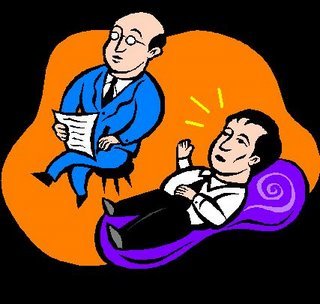
Most people understand that what you do to your body will have consequences, over time. If you smoke cigarettes every day, it will harm your health and you will eventually get an illness. If you eat an imbalanced or improper diet, there will be health consequences over time.
Most people don’t understand that it works the same with one’s mind, and with one’s mental health. When people become depressed, they don’t say, “What have I been putting into my mind all these years that has led me to feel sour, down, and demoralized?” Instead they say, “I have the illness of depression.” They speak of this illness as if it were somehow random, a case of being at the wrong place at the wrong time, like a lightning strike that came without a raindrop, or a tornado that fell upon them with no warning.
If you develop high cholesterol from eating nothing but fatty foods for years on end, you don’t say, “Oh my gosh. I’m fat and my cholesterol is high. How did this happen?” You recognize there are causes and you can reduce or eliminate the presence of the health problem by taking corrective action. If you get ill from smoking three packs of cigarettes a day you don’t say, “Oh my gosh. How could this happen? Why me?” You’d know full well what the cause of the illness was.
If you insist on looking at your mental problems as an illness, then you have to put some thought into figuring out what caused the illness — including what you did (intentionally or not) to bring that illness upon you. Depression is defined as a sad mood. “Sad” implies negative and gloomy thoughts or ideas. If the state of your ideas is part of the illness, isn’t it reasonable to assume that your own ideas contributed to the illness?
With mental illness, we’re talking about an “illness” of ideas. It’s also an illness of illogical or contradictory behaviors, self-defeating or even self-destructive behaviors over time. You don’t develop anxiety attacks “just because.” You don’t become clinically depressed for completely external reasons having nothing to do with how you think and act over the course of your life. Things DO happen for a reason; not mystical or supernatural reasons, but for objective reasons. Your emotions have causes, and those causes reside in your own mind. Not primarily in your childhood, not primarily in your brain chemistry, not primarily in the actions or attitudes of others — but in your own way of thinking about and perceiving the world, yourself and others.
There’s an old saying applied to nutrition: You are what you eat. This is quite literally true. You are also other things, including predispositions to various forms of health problems you might encounter regardless of your nutrition. But your nutrition has an impact in every case, and your nutrition — what you eat — is something you can control. The same applies to ideas you put into your mind, or ideas that others have put into your mind that you don’t question or challenge in any way. Are these ideas serving you well? Or do they deserve robust challenge and continuous correction? This is the task of introspection and self-awareness, as well as psychotherapy to whatever extent it might be needed (and it’s potentially useful for anyone, not just the “mentally ill.”)
It’s not helpful to think, “Something’s wrong with me.” The more accurate way to put it is: “Something is, or may be, wrong in my thinking.” Your task is to discover your errors. Maybe your problem has to do with other people. But even then, your thinking is what’s all-determining. “My parents treated me horribly, and as a result I have a warped and negative, hostile view of the world.” OK, your parents treated you horribly. They infected your mind with hostile and horrible ideas. But are you still buying into those ideas by treating them seriously and acting on them? Or are you aggressively rejecting them? This is your responsibility, and it’s separate from whatever your parents did or didn’t do to you.
This approach is shocking to some. They say it’s “blaming the victim.” I say it’s exactly the opposite. I call it liberation. It’s liberation from ideas that do not serve you well, ideas imposed on you by others that are mistaken and that you’re free to reject and change. And just because you internalized those ideas doesn’t mean you have to accept them. You’re free to reject or contradict a wrong idea every time it enters your mind. You’re free to never act on an idea you know is illogical, self-defeating or self-destructive, no matter how often that idea enters your mind.
Mental health is not determined by your past, by others or by your genetics. It’s determined by the level of independence you achieve: Independence from others in favor of your own rational, thinking mind. You’re the product of the ideas you chose to accept, and the impact those ideas have on your emotions and behaviors.
